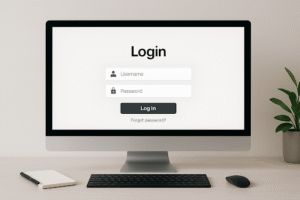Anxiety can be overwhelming, but you’re not alone. We’ll share practical tips to help you manage mental health tips for anxiety and find inner peace.
Anxiety affects millions worldwide in various forms. It can impact your quality of life significantly. Understanding anxiety’s causes and symptoms is crucial for effective management.
By exploring evidence-based strategies, you can learn to calm your mind and body. These methods will help you navigate the challenges of anxiety.
Table of Contents
ToggleKey Takeaways
- Anxiety is a common mental health condition that affects many people.
- Understanding the causes and symptoms of anxiety is the first step in managing it.
- Practical mental health tips, such as mindfulness, cognitive-behavioral therapy, and lifestyle changes, can help alleviate anxiety.
- Developing a holistic approach to mental health can lead to improved well-being and inner peace.
- Seeking professional support, if needed, can be a valuable resource in overcoming anxiety.
Understanding Anxiety: Causes and Symptoms
Anxiety is a mental health condition marked by constant worry, fear, and unease. Many people face anxiety disorders in their lives. Knowing its causes and symptoms helps tackle this common mental health issue.
What is Anxiety?
Anxiety is how our body reacts to threats or stress. It gets us ready to face danger or run from it. But when anxiety gets out of hand, it can mess up daily life.
Common Causes of Anxiety Disorders
Anxiety disorders can stem from various factors, including:
- Environmental Stressors: Big life events, like losing a job or facing trauma, can spark anxiety disorders.
- Biological Factors: Brain chemistry issues, genes, and health problems can lead to anxiety disorders.
- Psychological Factors: Negative thinking, low self-esteem, and past mental health issues can increase anxiety risk.
Anxiety disorders are complex and can have different causes for each person. Talking to a mental health expert can help you understand your specific situation.
| Common Symptoms of Anxiety Disorders | Potential Causes of Anxiety Disorders |
|---|---|
| Excessive worry and fear Restlessness and irritability Difficulty concentrating Muscle tension Rapid heartbeat Sweating | Traumatic life events Chronic stress Genetics and family history Medical conditions Substance abuse Negative thought patterns |
Knowing about anxiety disorders helps people take care of their mental health. They can seek proper treatment like therapy, medicine, or lifestyle changes.
Mental Health Tips for Anxiety
Anxiety can be tough to handle, but there are ways to manage it. Mindfulness, meditation, and cognitive-behavioral therapy (CBT) are helpful strategies. These approaches can improve your mental well-being.
Mindfulness and Meditation Practices
Mindfulness and meditation are powerful tools for easing anxiety. They help you focus on the present moment and find calm. By observing thoughts without judgment, you can respond to anxiety more clearly.
Try different meditation techniques like breath-focused meditation or body scans. Add mindfulness to your daily routines, even during short breaks. Regular practice can boost your ability to handle anxiety-inducing situations.
- Experiment with different meditation techniques, such as breath-focused meditation or body scans, to find what works best for you.
- Incorporate mindfulness into your daily routines, whether it’s during a brief break or while engaging in everyday activities.
- Consistency is key, as regular practice can significantly enhance your ability to manage anxiety-provoking situations.
Cognitive-Behavioral Therapy Techniques
Cognitive-behavioral therapy (CBT) helps identify and challenge distorted thinking patterns. It teaches you to recognize and reframe negative thoughts. This approach can help you develop better coping strategies.
- Work with a qualified mental health professional to explore thought patterns and develop personalized CBT exercises.
- Practice CBT techniques, such as thought records and exposure therapy, to confront anxiety-inducing situations in a controlled and gradual manner.
- Incorporate CBT principles into your daily life, applying the insights gained to make informed decisions and manage anxiety more effectively.
Using mindfulness, meditation, and CBT can help you manage anxiety. These tools can improve your mental wellness. With practice, you’ll be better equipped to handle life’s challenges.
Lifestyle Changes to Manage Anxiety
Anxiety can be tough, but mindful lifestyle changes can help. Exercise, healthy eating, and stress management are key steps. These practices can improve your well-being and help you manage anxiety better.
Exercise and Physical Activity
Regular exercise is a powerful tool for managing anxiety. It releases mood-boosting endorphins and reduces stress. Aim for 30 minutes of activity several times a week.
Try a brisk walk, dance class, or weightlifting session. These activities can help you feel more grounded and centered.
Healthy Eating Habits
What you eat affects your mental health. A balanced, nutrient-rich diet can help manage anxiety. Focus on whole foods like fruits, vegetables, lean proteins, and complex carbs.
These foods help regulate mood and fuel your body and mind. They provide the energy you need to function at your best.
Stress Management Strategies
Effective stress management is crucial for dealing with anxiety. Deep breathing, mindfulness meditation, and journaling can calm your mind. They give you a sense of control.
Try relaxing activities like yoga or listening to soothing music. Spending time in nature can also help you feel more balanced.
Embrace these changes to manage anxiety and build resilience. Remember, it’s a journey. Stay consistent with these practices in your daily routine.
| Lifestyle Change | Benefits for Anxiety |
|---|---|
| Regular Exercise | Releases endorphins, reduces stress, and promotes a sense of well-being |
| Healthy Eating Habits | Supports optimal brain function and mood regulation |
| Stress Management Strategies | Helps individuals find calm, control, and balance in their lives |
“Caring for your body, mind, and spirit is your greatest wealth.” – Rumi
Conclusion
Tackling anxiety requires a mix of mental strategies and lifestyle changes. Understanding its causes and symptoms helps people manage their mental health better. By taking proactive steps, individuals can improve their overall well-being.
The mental health tips in this article offer a path to inner peace. These include mindfulness, meditation, and cognitive-behavioral therapy techniques. Regular exercise and healthy eating habits also play a crucial role.
Managing anxiety is an ongoing process. Consistent use of these strategies can lead to a calmer mind. This approach fosters improved well-being and a stronger sense of inner peace.
Embrace the power of anxiety management and mental health tips. These tools can help you unlock a more fulfilling and resilient life.
Related: Fuel your body with whole foods. WellnessZing keeps you ahead in your wellness journey.
FAQ
What is anxiety and how can it impact mental health?
Anxiety is a mental health condition marked by constant worry and fear. It affects mental well-being, causing physical symptoms and daily life struggles. Anxiety can lead to intrusive thoughts and difficulty with normal activities.
What are some common causes of anxiety disorders?
Anxiety disorders can stem from genetics, trauma, chronic stress, and medical conditions. Substance abuse may also trigger anxiety. Work pressures and relationship issues can contribute to developing these disorders.
How can mindfulness and meditation help manage anxiety?
Mindfulness and meditation are powerful tools for managing anxiety. These practices help people focus on the present and reduce overthinking. They also improve emotional control and self-awareness.
Regular mindfulness can calm the mind and lower physical stress. It can also boost overall well-being and help manage anxiety symptoms effectively.
What are some cognitive-behavioral therapy (CBT) techniques for addressing anxiety?
CBT is a proven method for tackling anxiety. It helps identify and challenge negative thoughts. CBT also teaches coping strategies and gradually exposes people to their fears.
This approach allows individuals to gain control over anxious thoughts. It can lead to better management of anxiety-related behaviors.
How can lifestyle changes, such as exercise and healthy eating, contribute to anxiety management?
Lifestyle changes play a crucial role in managing anxiety. Regular exercise can reduce stress and improve mood. It also promotes better sleep, which is essential for mental health.
A balanced diet supports overall mental well-being. It provides necessary nutrients for cognitive and emotional health. These changes can significantly impact anxiety management.
What are some effective stress management strategies for individuals with anxiety?
Relaxation techniques like deep breathing and muscle relaxation can help manage anxiety. Yoga is another beneficial practice for stress reduction. Engaging in enjoyable hobbies can also alleviate anxiety symptoms.
Maintaining a regular sleep schedule is crucial for mental health. Seeking social support is another effective strategy. These approaches can help manage stress and reduce anxiety.




